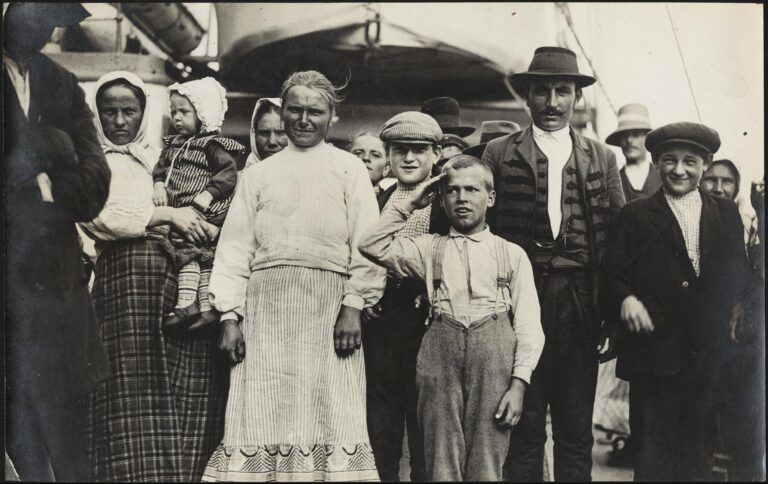A recent Reuters survey has revealed that only 16% of Italians would be willing to take up arms and fight for their country if called upon. This striking statistic highlights evolving attitudes toward national defense and civic duty in Italy, raising questions about public sentiment amid geopolitical uncertainties. The findings offer a rare glimpse into the mindset of Italians regarding military service and patriotism in the modern era.
Declining Patriotic Sentiment Among Italians Raises National Security Concerns
Recent survey results reveal a stark drop in the level of commitment Italians feel towards defending their homeland in times of crisis. With only 16% of respondents indicating willingness to take up arms for their country, experts warn that this erosion of nationalistic fervor could have serious implications for Italy’s resilience in the face of emerging geopolitical threats. Factors contributing to this decline include generational shifts, economic uncertainty, and a growing disillusionment with traditional political institutions.
The survey also highlighted several key attitudes shaping this sentiment:
- National pride: Less than 30% express strong pride in Italian heritage.
- Trust in government: Nearly 60% have little to no confidence in the government’s ability to protect national interests.
- Perceived threats: A majority prioritize economic stability over military engagement.
| Age Group | Willingness to Fight (%) | Trust in Government (%) |
|---|---|---|
| 18-29 | 12 | 32 |
| 30-49 | 18 | 40 |
| 50+ | 20 | 45 |
Generational Differences and Social Factors Influence Willingness to Serve
The stark variation in willingness to fight for Italy reflects deeper social and generational divides. Younger Italians, especially those under 35, appear significantly less inclined to volunteer for military service compared to older generations. This reluctance is attributed to a complex interplay of factors including increased skepticism towards government decisions, economic insecurities, and shifting cultural values that prioritize personal freedom and career over national duty. Additionally, social media and global interconnectedness expose younger citizens to diverse perspectives, often fostering critical views on nationalistic appeals.
Other social dimensions also play a crucial role in shaping attitudes toward military engagement. Urban dwellers and those with higher education levels show markedly less enthusiasm for combat roles, whereas rural populations and individuals with strong community ties tend to express greater readiness to serve. The table below illustrates how these factors influence willingness across demographics:
| Demographic Group | Willingness to Serve (%) |
|---|---|
| Age 18-34 | 10% |
| Age 55+ | 28% |
| Urban Residents | 12% |
| Rural Residents | 25% |
| Higher Education | 11% |
| Secondary or Less | 22% |
- Skepticism towards political leadership influences younger generations most.
- Economic challenges reduce the appeal of military service as a viable path.
- Community engagement strengthens resolve in rural areas.
Policy Recommendations to Reignite Civic Engagement and Strengthen National Defense
To counter the alarming decline in willingness to defend the nation, a multifaceted approach is urgently needed. Governments should prioritize civic education reforms that emphasize national history, the values of democracy, and the importance of collective responsibility from an early age. Complementing education, national service programs-whether military or civil-must be made more accessible and appealing, offering pathways that integrate skill development, career opportunities, and community engagement. Such initiatives can foster a renewed sense of belonging and patriotism, bridging the gap between citizens and state institutions.
Strengthening national defense requires not only training recruits but also enhancing public trust and communication. Transparent defense policies and community involvement in security discussions can empower citizens, making them active participants rather than passive observers. Additionally, investment in modernizing armed forces while ensuring that service members receive adequate social support will further boost morale and commitment. A strategic combination of education, opportunity, and trust-building is essential to reverse apathy and cultivate a generation ready to stand united for their homeland.
- Implement nationwide civic education reforms targeting youth
- Expand voluntary national service with career incentives
- Increase transparency and community involvement in defense policy
- Improve social support systems for military personnel
| Policy Focus | Expected Impact |
|---|---|
| Civic Education | Raised Awareness & National Pride |
| National Service Expansion | Higher Enlistment & Skill Building |
| Public-Defense Engagement | Enhanced Trust & Collaboration |
| Military Social Support | Improved Morale & Retention |
Final Thoughts
The survey’s findings shed light on a shifting perspective towards national defense among Italians, raising questions about patriotism and civic duty in contemporary society. As geopolitical tensions continue to evolve, understanding public sentiment will remain crucial for policymakers and military strategists alike. Further analysis is needed to explore the underlying factors influencing these attitudes and their potential impact on Italy’s future security landscape.




